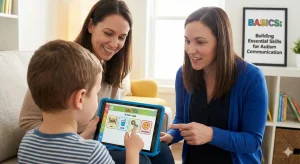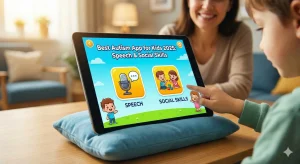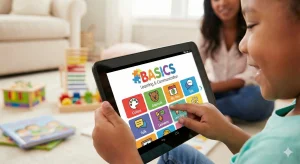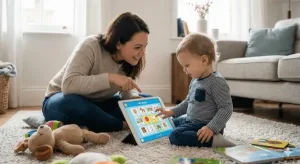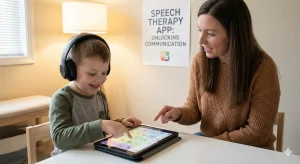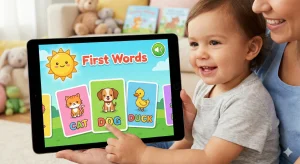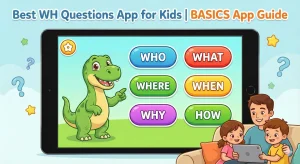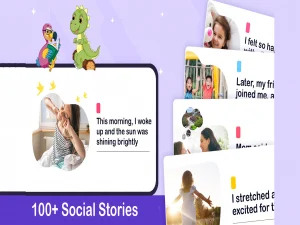When Marriage Falls Short: How Counseling Can Help
By Prapoorna M
Last Updated: January 24, 2025
Marriage is often built on hopes and dreams, with both partners envisioning a future filled with love, support, and mutual respect. However, it’s not uncommon for couples to face challenges that can shake the very foundation of their relationship. Whether it’s due to unmet expectations, communication breakdowns, or the pressures of everyday life, marriages sometimes fall short of what was once anticipated. When this happens, marriage counseling can be a crucial step in addressing these issues, leading to feelings of frustration, disappointment, and even despair.
But here’s the good news: marriage counseling can offer a way to bridge the gap between expectations and reality. Through guided conversations, practical strategies, and professional support, counseling provides couples with the tools they need to understand each other better and work towards a healthier, more fulfilling relationship. Whether it’s improving communication, resolving conflicts, or rebuilding trust, counseling offers a path forward when it feels like the marriage is stuck.
Book Your Marriage Counselling Now
Understanding the Signs of a Struggling Marriage
Every marriage has its ups and downs, but certain signs indicate deeper issues that shouldn’t be ignored. Recognizing these signs early can make all the difference in preventing further damage to the relationship. So, what are the common red flags that suggest a marriage is struggling?
- Communication Breakdown
One of the most telling signs of a struggling marriage is a breakdown in communication. Conversations that once flowed easily may now be filled with misunderstandings, arguments, or complete silence. If you find yourself avoiding discussions with your partner or feeling like you’re never truly heard, it’s a clear indicator that something needs attention. - Loss of Intimacy
Physical and emotional intimacy are vital to a healthy marriage. When these begin to fade, it can create a sense of distance between partners. Whether it’s a lack of affection, reduced sexual activity, or simply feeling disconnected, a loss of intimacy often signals underlying issues that need to be addressed. - Constant Arguments
Every couple argues, but when disagreements become frequent and unresolved, they can erode the foundation of the relationship. If small issues regularly escalate into major conflicts, or if arguments feel repetitive and never-ending, it’s a sign that deeper problems may be at play. - Growing Apart
Sometimes, the signs are less about conflict and more about indifference. If you feel like you and your partner are drifting apart, spending less time together, or pursuing separate interests without any effort to reconnect, it’s a warning sign that your marriage might be in trouble.
The Role of Counseling in Addressing Marital Issues
When a marriage starts to struggle, it’s natural for both partners to feel frustrated, confused, and sometimes even hopeless. This is where marriage counseling comes into play. Marriage counseling, also known as couples therapy, is a specialized form of therapy designed to help couples navigate their relationship challenges. The primary goal of marriage counseling is to provide a safe and structured environment where both partners can openly express their thoughts, feelings, and concerns.
One of the most significant advantages of marriage counseling is the presence of a neutral third party—the counselor. Unlike friends or family members who might take sides, a counselor remains impartial, focusing solely on the well-being of the relationship. This neutrality is crucial because it allows both partners to feel heard and understood without the fear of judgment or bias. A skilled counselor helps bridge the communication gap by encouraging open dialogue and ensuring that both partners’ perspectives are considered.
Key Benefits of Marriage Counseling
Marriage counseling offers a variety of benefits that can help couples overcome their challenges and build a stronger, healthier relationship. Let’s explore some of the key advantages that counseling provides.
1. Improved Communication
One of the most significant benefits of marriage counseling is the improvement in communication between partners. Over time, couples may struggle to express their thoughts and feelings openly, leading to misunderstandings and frustration. A marriage counselor helps facilitate open and effective communication by teaching couples how to listen actively and speak honestly without fear of judgment. This enhanced communication lays the foundation for resolving conflicts and strengthening the relationship.
2. Conflict Resolution
Every couple faces conflicts, but it’s how these conflicts are handled that determines the health of the marriage. Marriage counseling provides couples with strategies to resolve disagreements without escalating them into major issues. Counselors teach techniques such as active listening, compromise, and finding common ground, which help couples address their differences constructively. By learning to manage conflicts in a healthy way, couples can prevent small disagreements from damaging their relationship.
3. Rebuilding Trust
Trust is the cornerstone of any successful marriage, but it can be easily broken by misunderstandings, betrayal, or past hurts. Marriage counseling plays a crucial role in rebuilding trust by helping couples address the underlying issues that have caused the breach. Through guided conversations and exercises, counselors assist couples in understanding each other’s perspectives, apologizing sincerely, and taking steps to restore the emotional intimacy that may have been lost. This process of rebuilding trust is essential for long-term relationship success.
4. Emotional Support
Marriage can be an emotional journey, filled with ups and downs. Counseling provides a safe and supportive environment where both partners can express their emotions, concerns, and fears without fear of criticism. This emotional support is vital, especially during difficult times when one or both partners may feel overwhelmed or disconnected. By providing this space, counseling helps couples reconnect emotionally and strengthens the bond between them.
Common Counseling Techniques for Struggling Marriages
Marriage counseling employs various therapeutic techniques to help couples address their challenges and rebuild their relationship. Each method has its unique approach to tackling the issues that may be causing strain. Here are some of the most effective counseling techniques used for struggling marriages:
Cognitive Behavioral Therapy (CBT)
Cognitive Behavioral Therapy (CBT) is a widely used method in marriage counseling that focuses on identifying and changing negative thought patterns and behaviors. In a marriage, it’s easy for misunderstandings and frustrations to create harmful cycles of negative thinking. CBT helps couples recognize these patterns and replace them with more positive and constructive thoughts. By shifting how partners perceive each other and their relationship, CBT can lead to healthier interactions and a more supportive environment.
Emotionally Focused Therapy (EFT)
Emotionally Focused Therapy (EFT) is centered around strengthening the emotional bond between partners. This approach helps couples understand and express their deeper emotions, fostering a sense of security and connection. EFT works by identifying the emotional needs that drive conflicts and misunderstandings, then guiding couples toward fulfilling those needs in positive ways. By deepening emotional intimacy, EFT helps couples create a more resilient and loving relationship.
Solution-Focused Therapy
Solution-Focused Therapy is a practical and goal-oriented approach that emphasizes finding solutions rather than dwelling on problems. In this method, the counselor works with the couple to identify their strengths and past successes, then uses those insights to develop strategies for resolving current issues. This forward-looking approach helps couples focus on what they can achieve together, making it easier to overcome challenges and move toward a healthier relationship.
Gottman Method
The Gottman Method is a research-based approach that focuses on building a strong foundation through effective communication and mutual understanding. This method teaches couples how to manage conflict, improve communication, and enhance their friendship. By fostering trust and commitment, the Gottman Method helps couples build a stable and fulfilling relationship. The emphasis on understanding each other’s needs and responding with empathy makes this method particularly effective for long-term success.
Counseling Techniques vs. Benefits
| Counseling Technique | Key Benefit |
|---|---|
| Cognitive Behavioral Therapy (CBT) | Helps couples identify and change negative thought patterns and behaviors that contribute to conflicts. |
| Emotionally Focused Therapy (EFT) | Focuses on deepening emotional connections by addressing underlying emotional needs and attachment issues. |
| Solution-Focused Therapy | Encourages couples to focus on solutions and future goals rather than dwelling on past problems or conflicts. |
| Gottman Method | Enhances relationship stability by improving communication skills, understanding, and emotional intimacy. |
When Counseling Might Not Be Enough
Marriage counseling can be a powerful tool for many couples, but it’s important to acknowledge that it isn’t always the right solution for every situation. There are certain scenarios where counseling might not be effective, and in these cases, alternative approaches may be necessary.
One common challenge is unwillingness to participate. For counseling to work, both partners need to be fully committed to the process. If one partner is resistant or unwilling to engage, the effectiveness of counseling is significantly reduced. In such cases, it may be helpful for the willing partner to seek individual therapy to address their own needs and explore other options.
Another situation where counseling might fall short is in the presence of abusive relationships. Whether the abuse is physical, emotional, or psychological, the safety of the individuals involved must always come first. In abusive situations, traditional marriage counseling is not recommended, as it can sometimes exacerbate the power imbalance between partners. Instead, it’s crucial to seek specialized support, such as individual counseling, legal advice, or help from organizations that assist abuse survivors.
Taking the First Step: How to Get Started with Marriage Counseling
Deciding to seek marriage counseling is a significant and positive step toward improving your relationship. But once you’ve made that decision, where do you begin? Here are some practical tips to help you get started on the right path.
Tips on Finding the Right Marriage Counselor
Finding the right marriage counselor is crucial to the success of your therapy. Start by looking for a licensed professional who specializes in couples therapy. It’s important to choose someone with experience and a style that resonates with both you and your partner. You can ask for recommendations from trusted friends or family members, or search online for counselors with strong reviews. Many couples also find it helpful to schedule an initial consultation with a potential counselor to ensure they feel comfortable and supported.
What to Expect in the First Few Sessions
The first few sessions of marriage counseling are typically focused on understanding the dynamics of your relationship and identifying the core issues that need to be addressed. During these initial meetings, the counselor will ask questions about your relationship history, communication patterns, and areas of conflict. This is also a time for both partners to express their concerns and goals for therapy. It’s normal to feel a bit nervous, but remember that the counselor is there to guide you through the process in a supportive and nonjudgmental way.
Encouragement to Take Action Sooner Rather Than Later
If you’re considering marriage counseling, don’t wait too long to take the first step. The sooner you seek help, the more likely it is that you can prevent further damage to your relationship. Addressing issues early on can lead to quicker and more effective resolutions, helping you and your partner move forward with a renewed sense of connection and understanding. Remember, seeking counseling is a proactive choice that shows your commitment to making your marriage work.
Conclusion
Marriage comes with its share of joys and challenges, and it’s normal for couples to face difficulties. When these challenges start to become overwhelming, it’s important to address them before they cause lasting harm. Marriage counseling offers a helpful way forward. It provides a safe space where couples can talk openly, resolve conflicts, and rebuild trust. Through counseling, couples can work through their issues and reconnect with what brought them together in the first place.
Even when a marriage falls short of expectations, there is still hope. Counseling gives couples the tools they need to navigate tough times and build a stronger relationship. If you notice signs that your marriage is struggling, don’t wait to seek help. The sooner you take action, the more likely you are to find the solutions you need. Counseling offers a way to move forward together, creating a healthier and more fulfilling partnership.
Frequently Asked Questions:
1. What are the signs that my marriage is struggling?
Common signs include communication breakdowns, loss of intimacy, constant arguments, and feeling emotionally distant from your partner.
2. How can marriage counseling help when a marriage falls short of expectations?
Marriage counseling provides a safe environment for couples to communicate openly, resolve conflicts, rebuild trust, and strengthen their relationship.
3. What should I expect in the first few marriage counseling sessions?
In the initial sessions, the counselor will assess your relationship dynamics, identify key issues, and help both partners set goals for the therapy process.
4. What are some common counseling techniques used in marriage therapy?
Techniques include Cognitive Behavioral Therapy (CBT) for changing negative thought patterns, Emotionally Focused Therapy (EFT) for strengthening emotional bonds, and the Gottman Method for improving communication and understanding.
5. When might marriage counseling not be enough?
Counseling may not be effective if one partner is unwilling to participate, or in cases of abuse. In such situations, individual therapy or legal advice might be necessary.
6. How do I find the right marriage counselor?
Look for a licensed professional with experience in couples therapy. It’s also important to choose a counselor whose approach and style resonate with both you and your partner.
7. Is it too late to seek marriage counseling if we’ve been struggling for a long time?
It’s never too late to seek help. Addressing issues sooner rather than later can prevent further damage and help you rebuild your relationship.
8. Can marriage counseling really save a failing marriage?
While success depends on various factors, many couples have found that marriage counseling provides the tools and support needed to overcome challenges and strengthen their relationship.
9. How long does marriage counseling typically take to show results?
The duration of marriage counseling varies depending on the couple’s unique situation. Some may see improvements in just a few sessions, while others may require several months of consistent therapy to achieve lasting results.
10. What if my partner refuses to attend marriage counseling?
If your partner is unwilling to attend counseling, it may be helpful to start with individual therapy. A therapist can guide you on how to approach the situation and explore other ways to improve your relationship.
About the Author:
Prapoorna Mangalampalli
M.Sc., M.A., (Dual Masters in Psychology & English) – Counselor (6+ years of experience)
Prapoorna, with dual Master’s degrees in Psychology and English and over 6 years of experience, elevates human experiences through insightful counseling. She excels in online, marital, relationship, child, family, and career counseling. At Wellness Hub, she thrives in a team environment, valuing innovation, compassion, and client success.
Book your Free Consultation Today
Parent/Caregiver Info:
Client’s Details:
* Error Message

